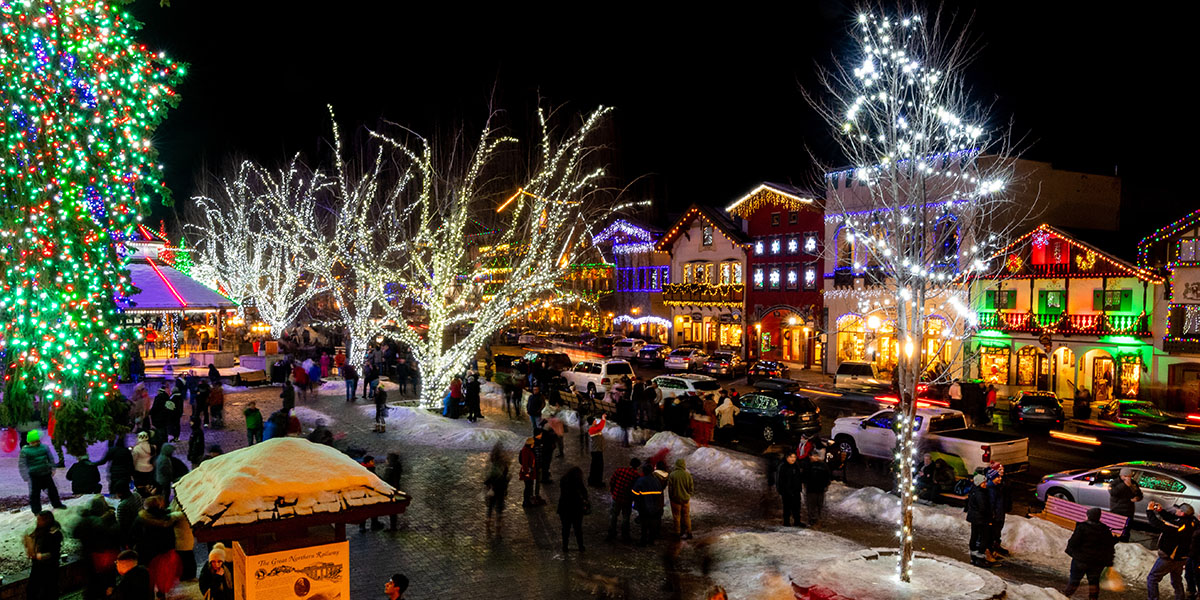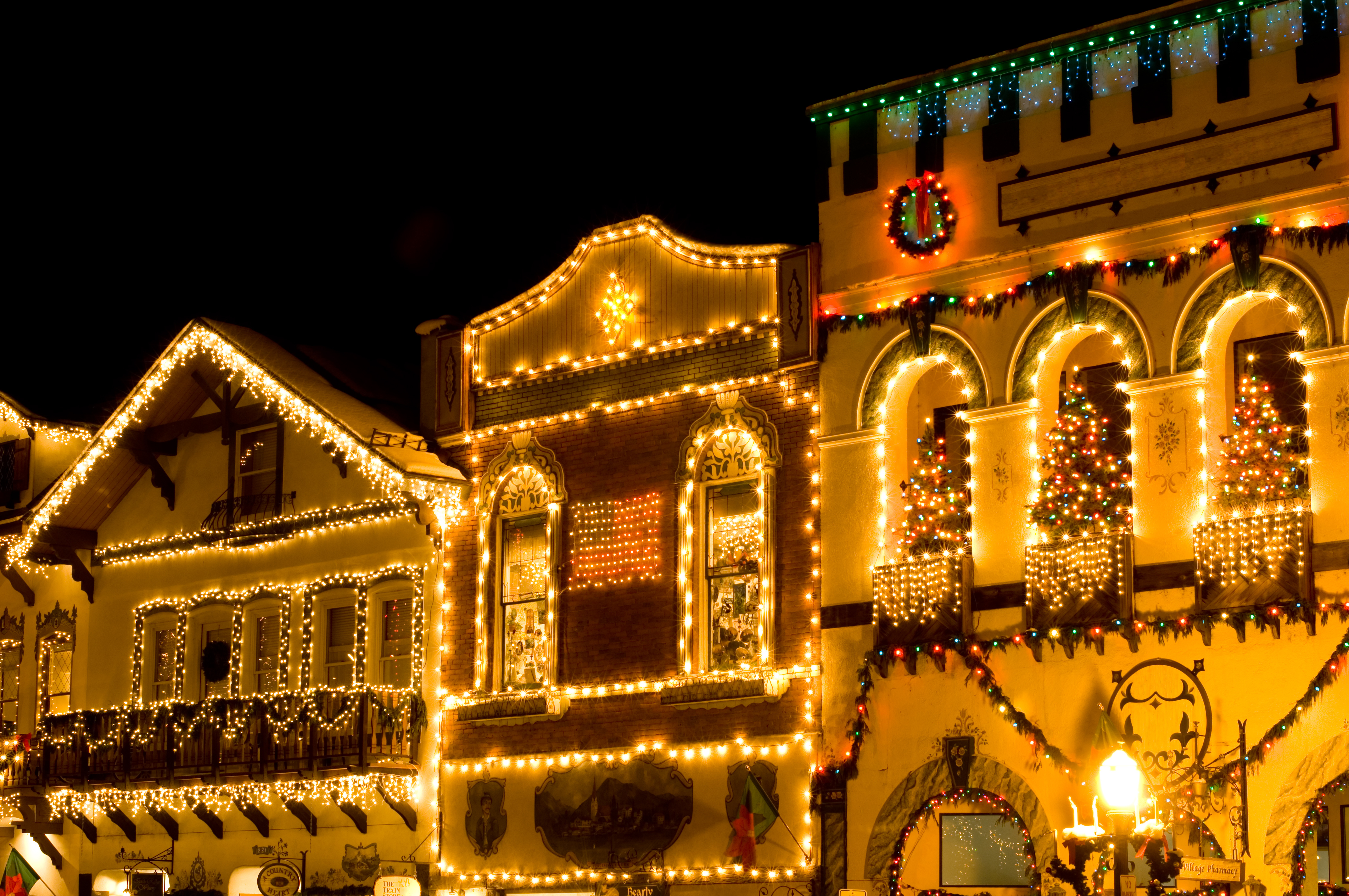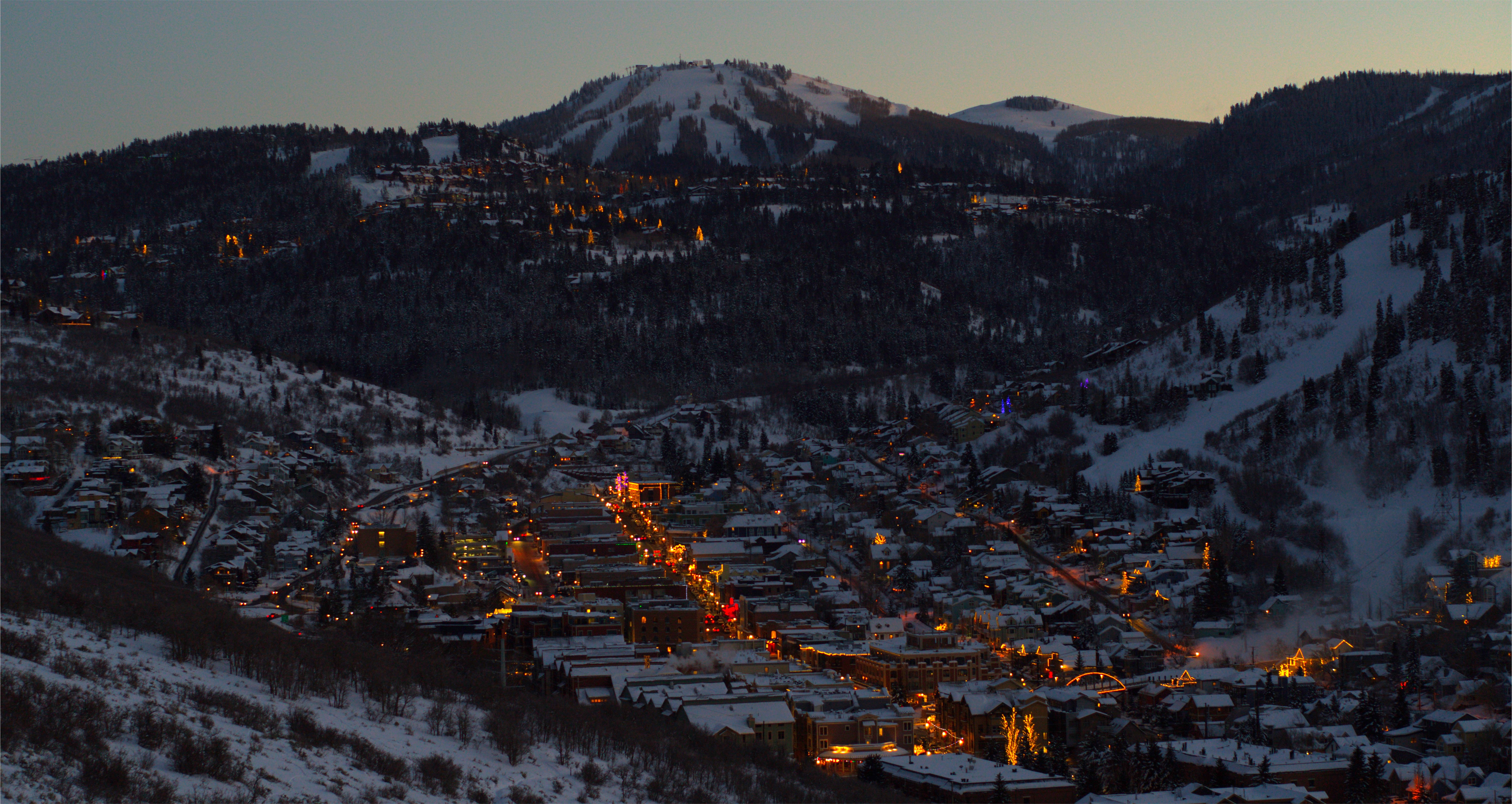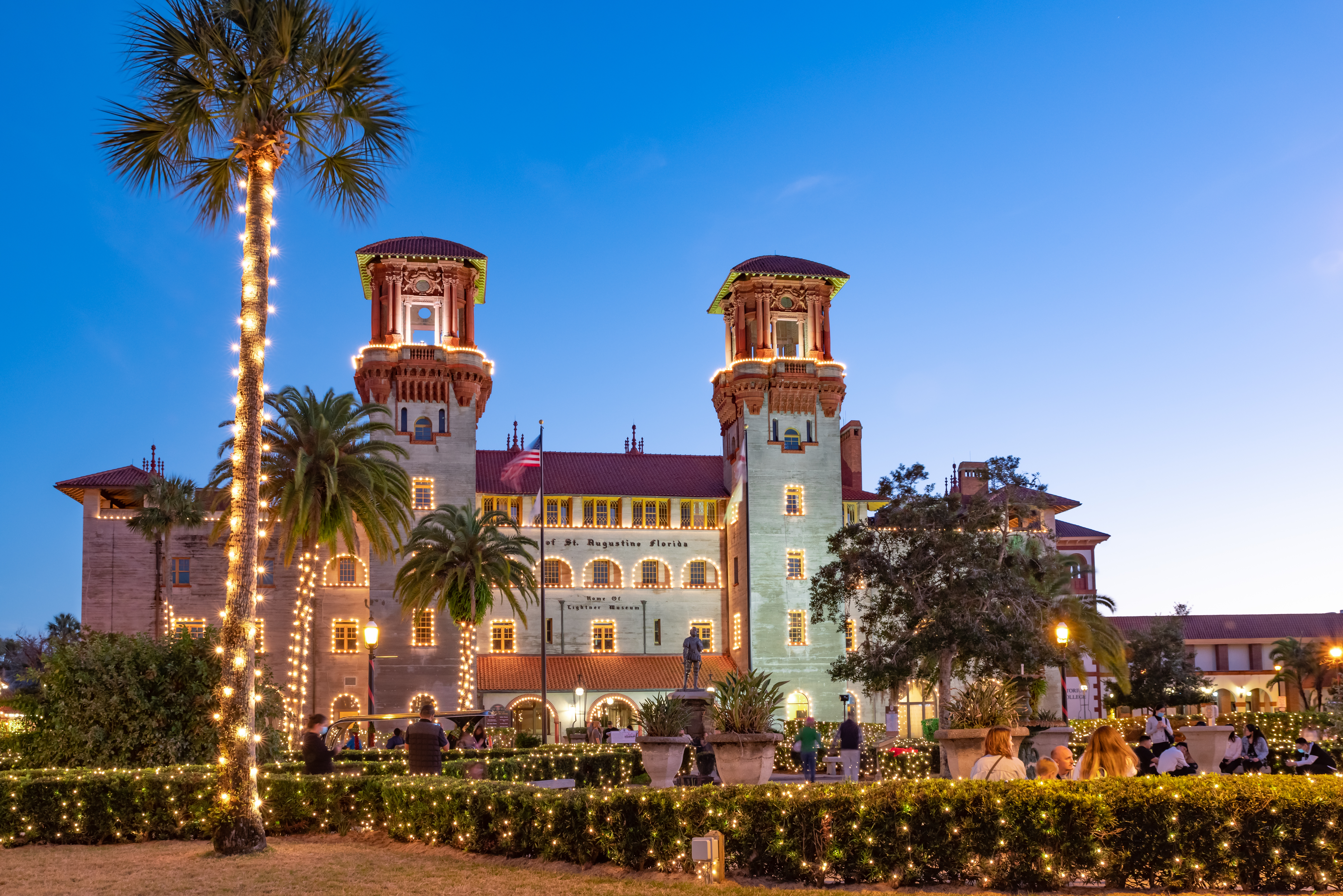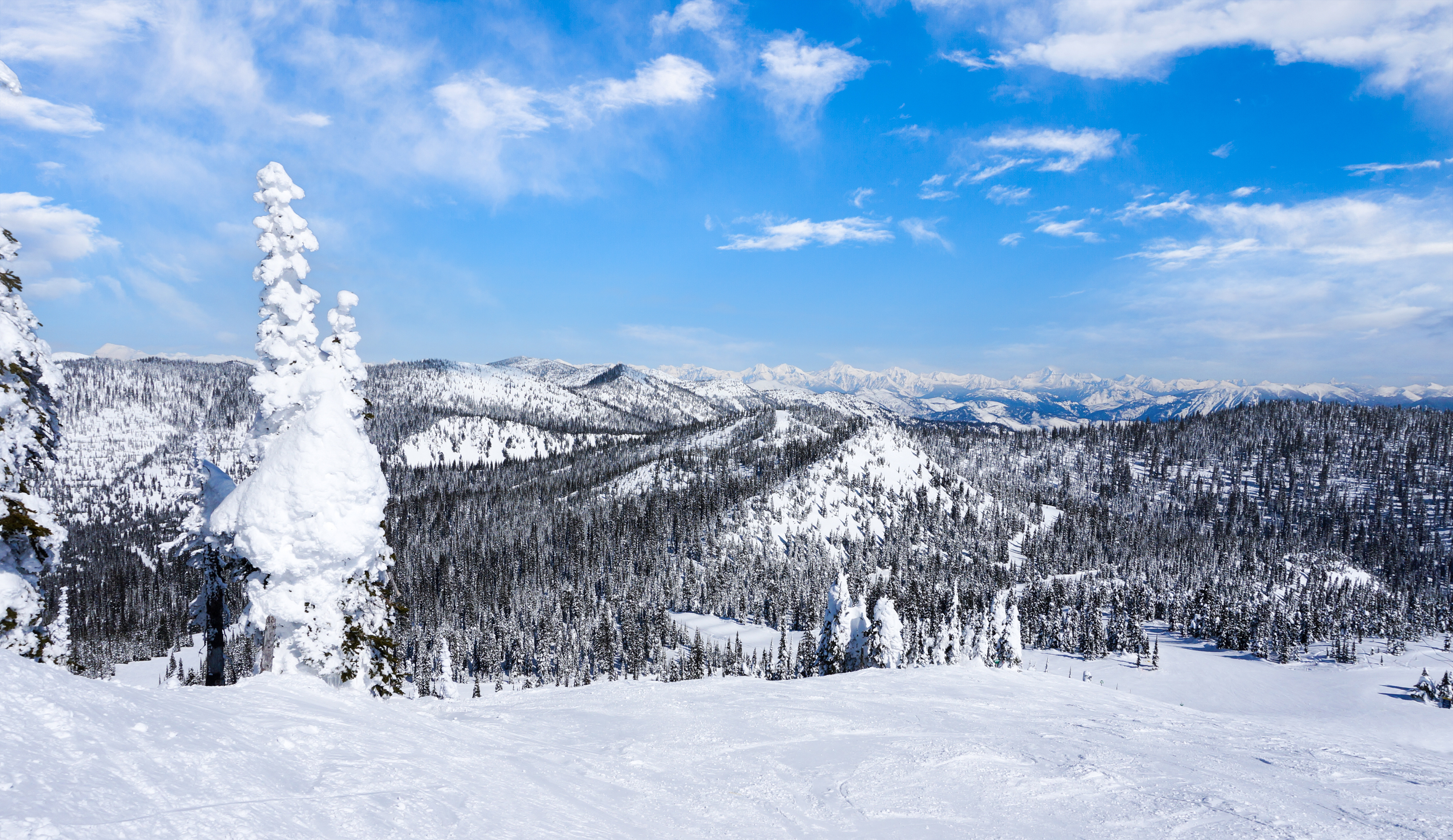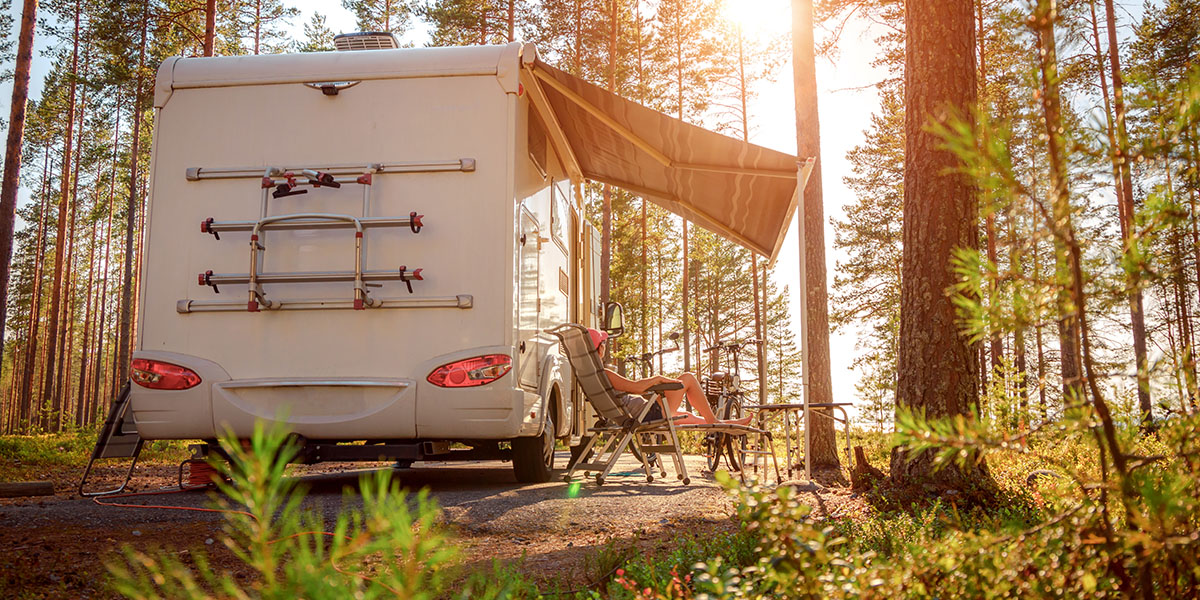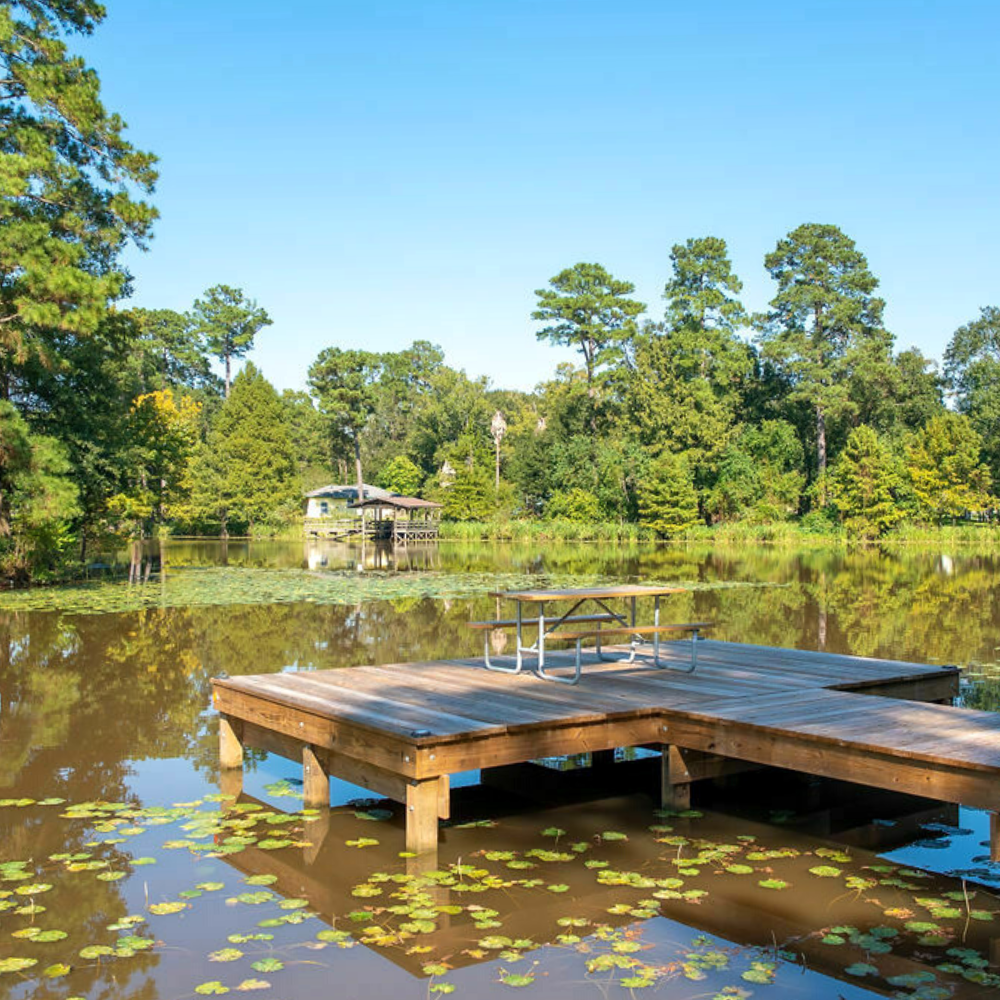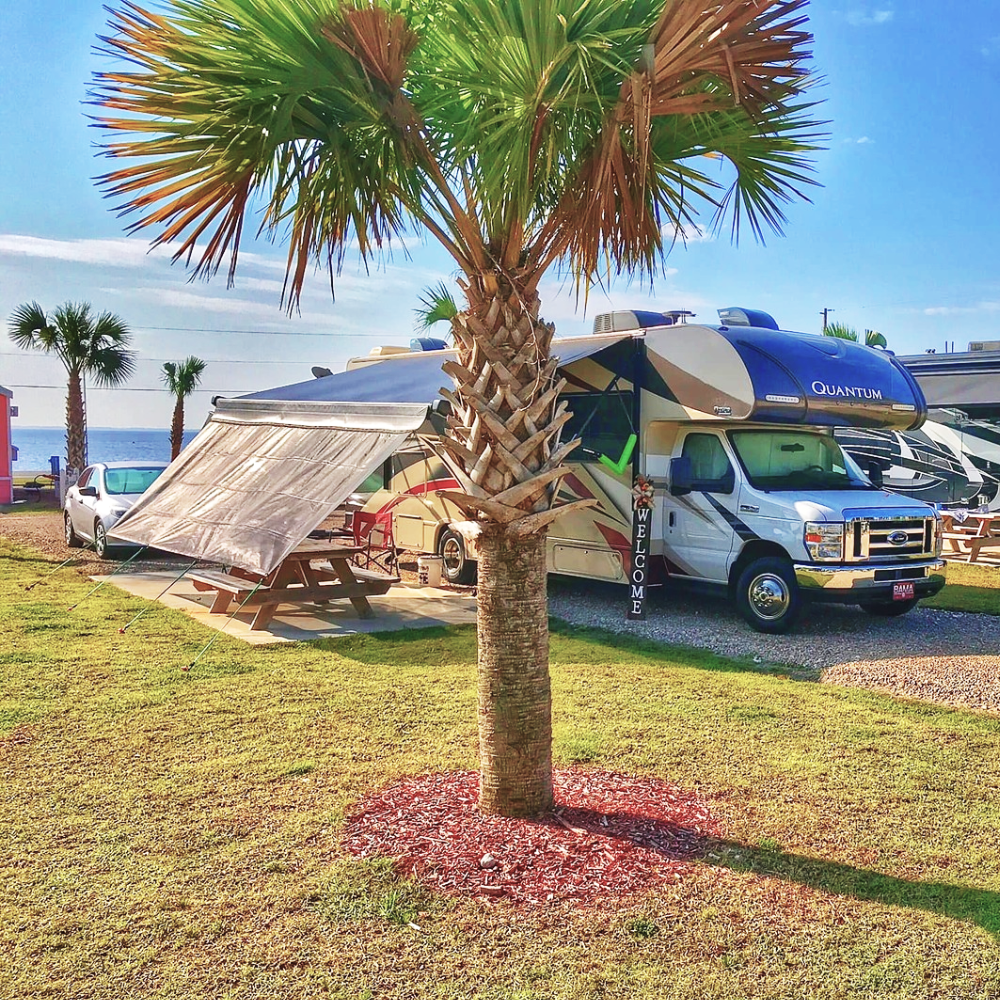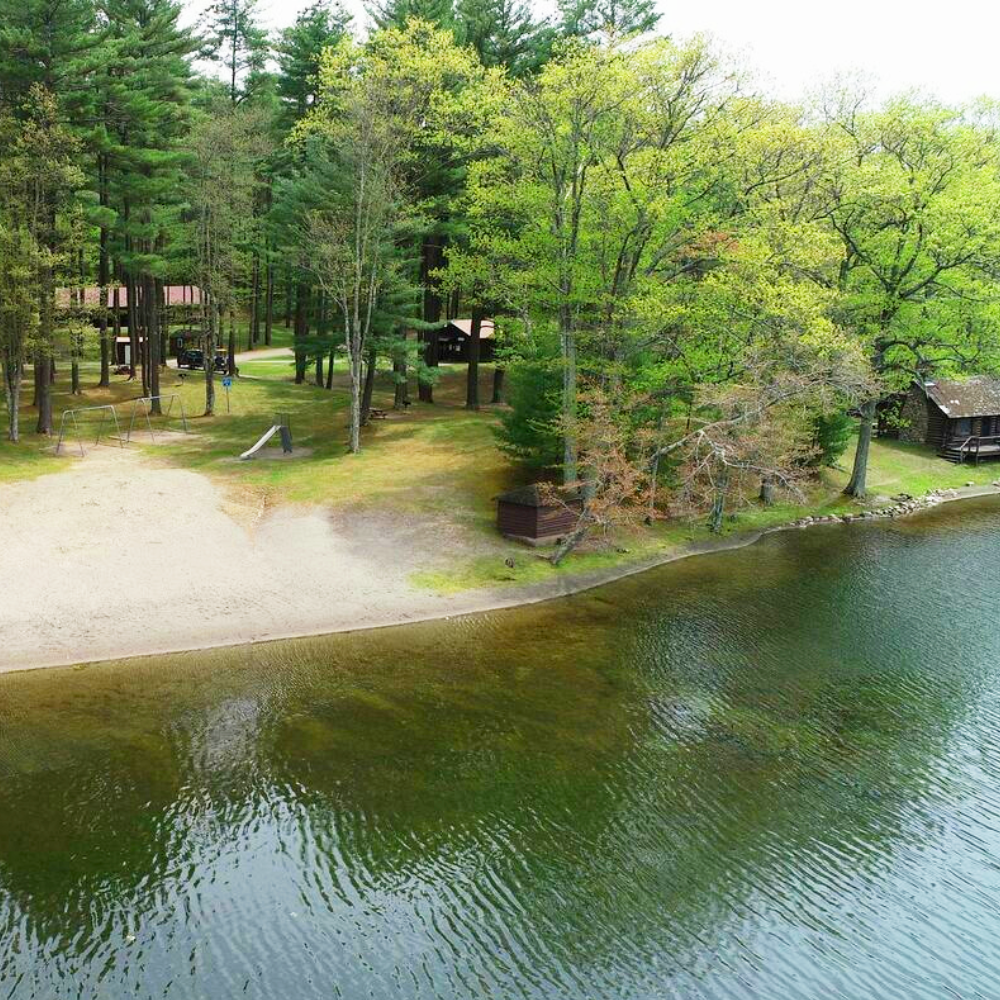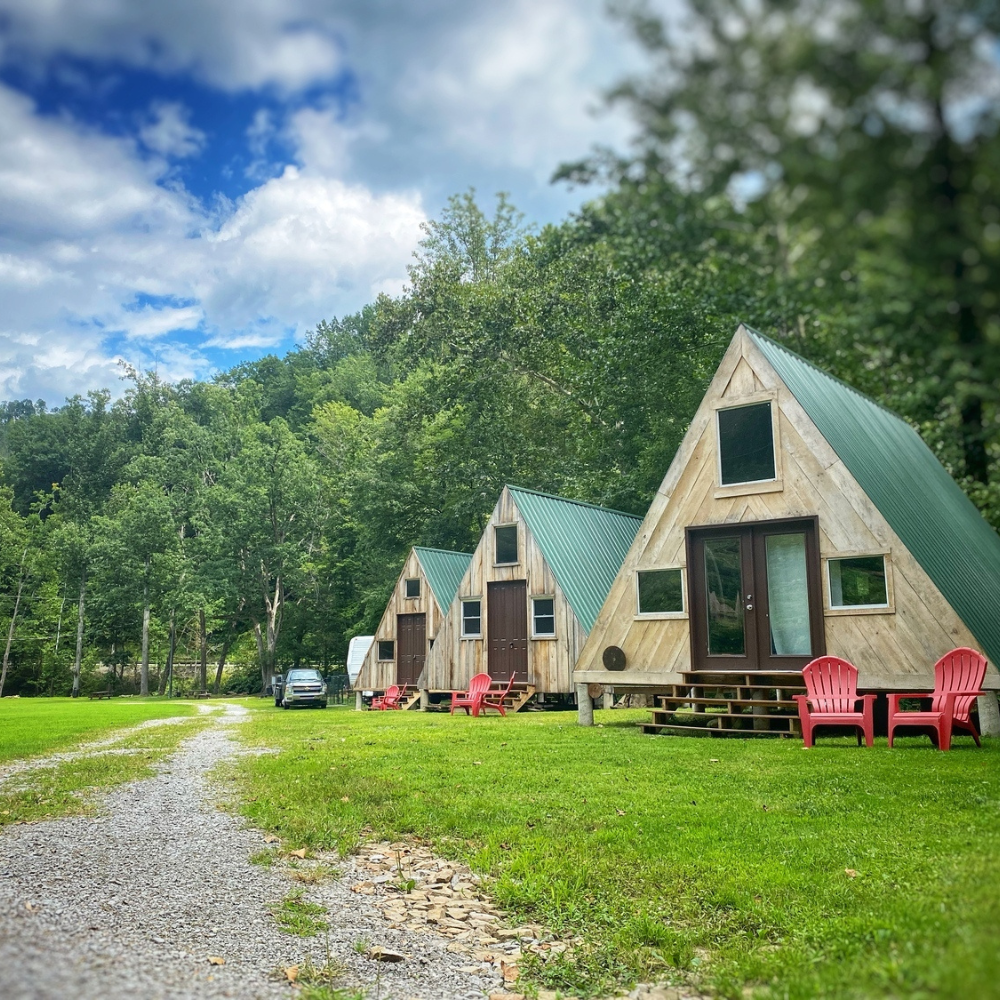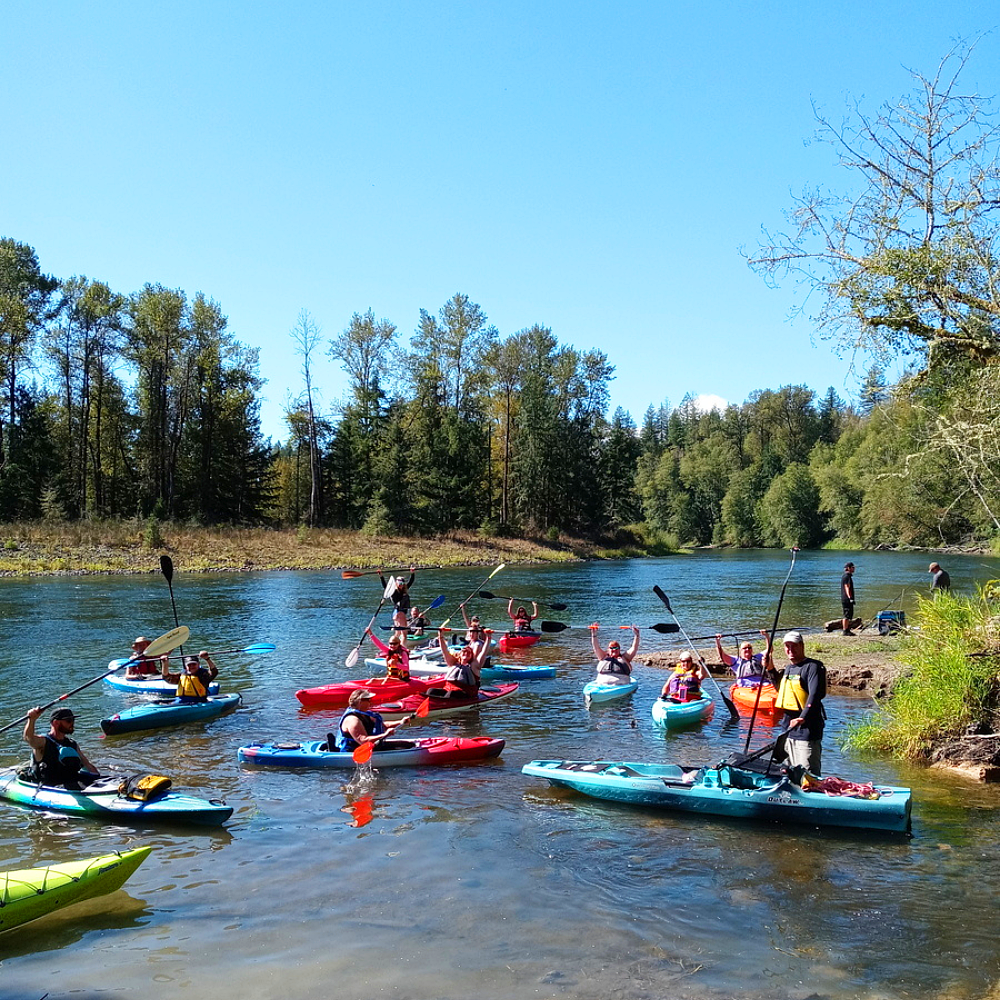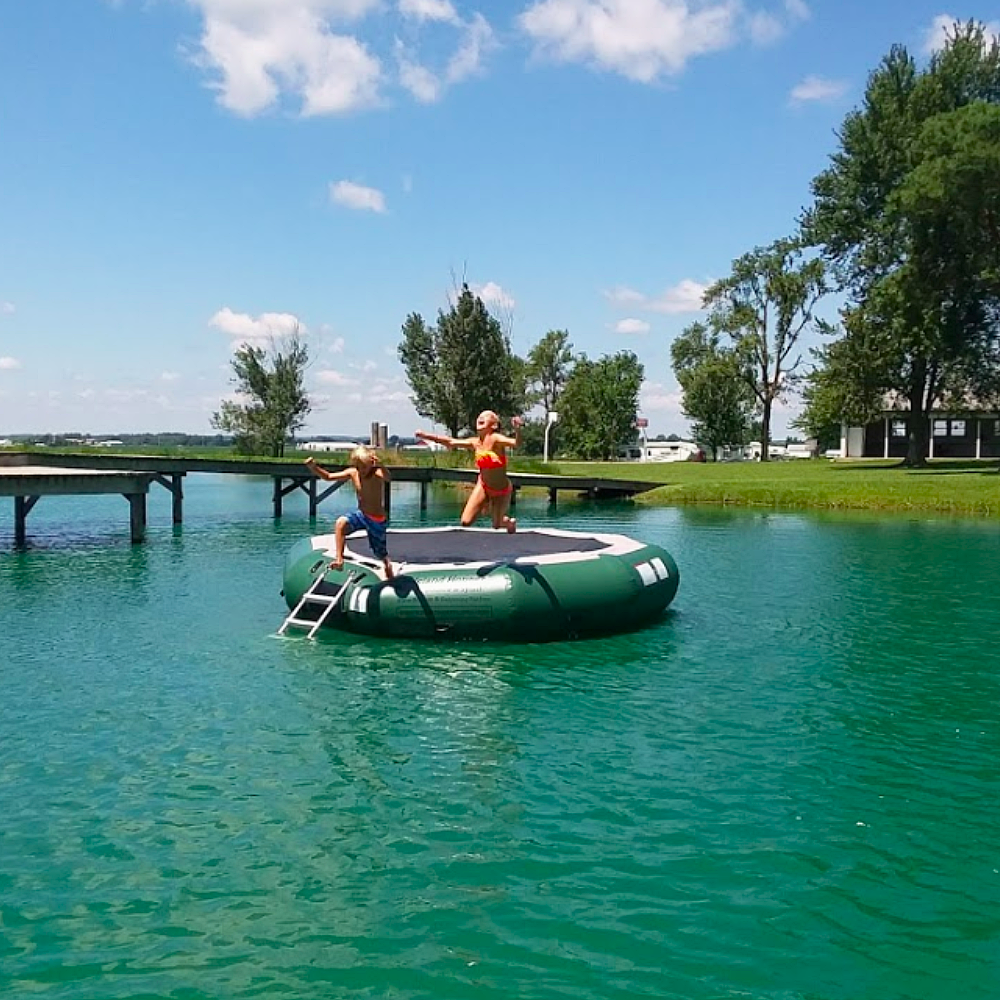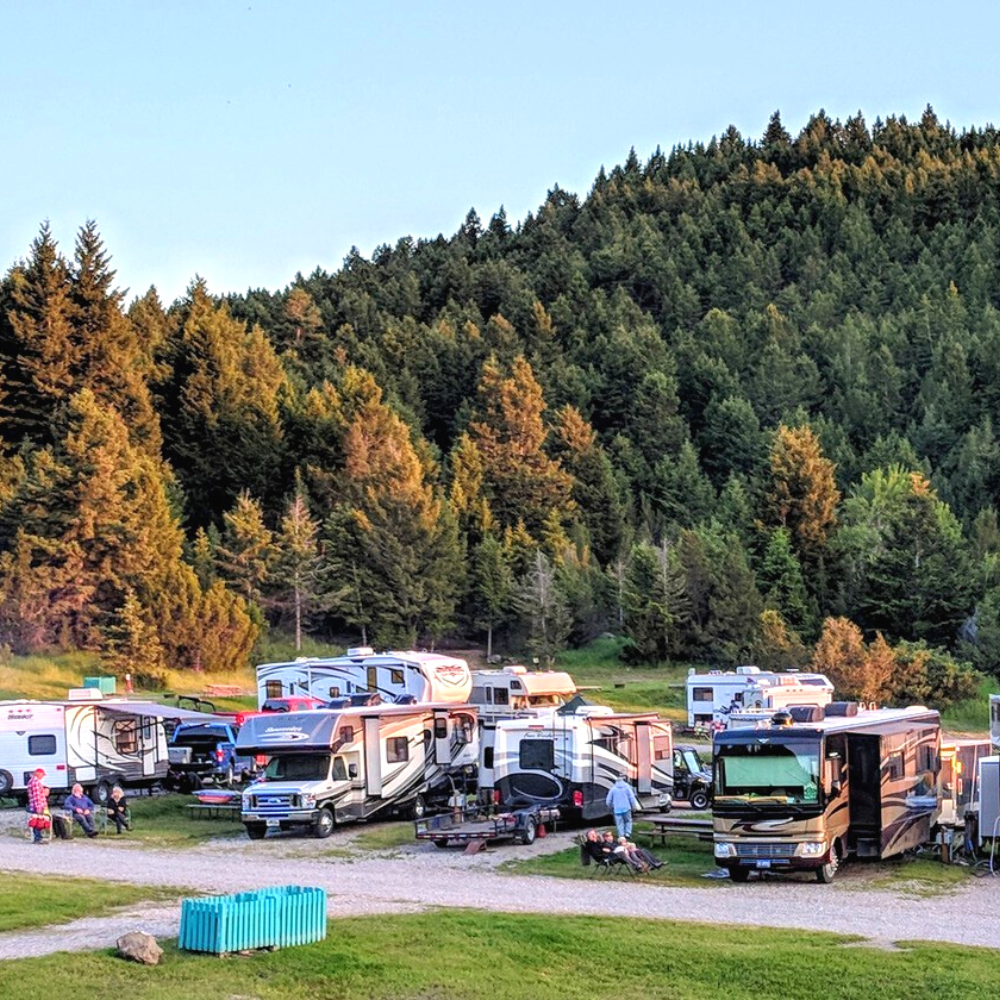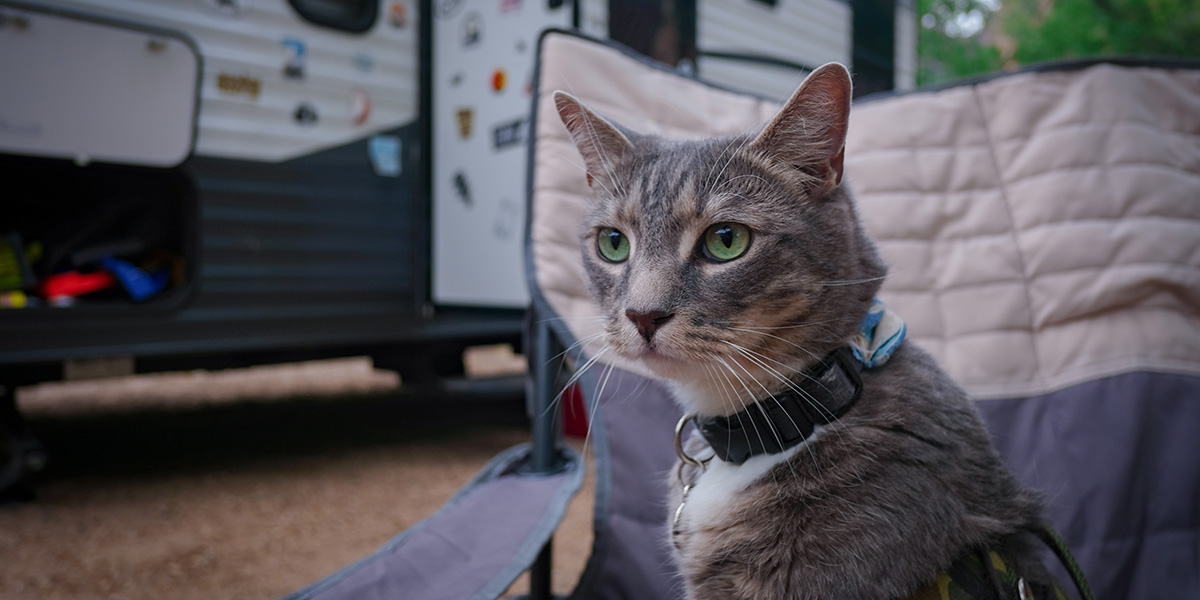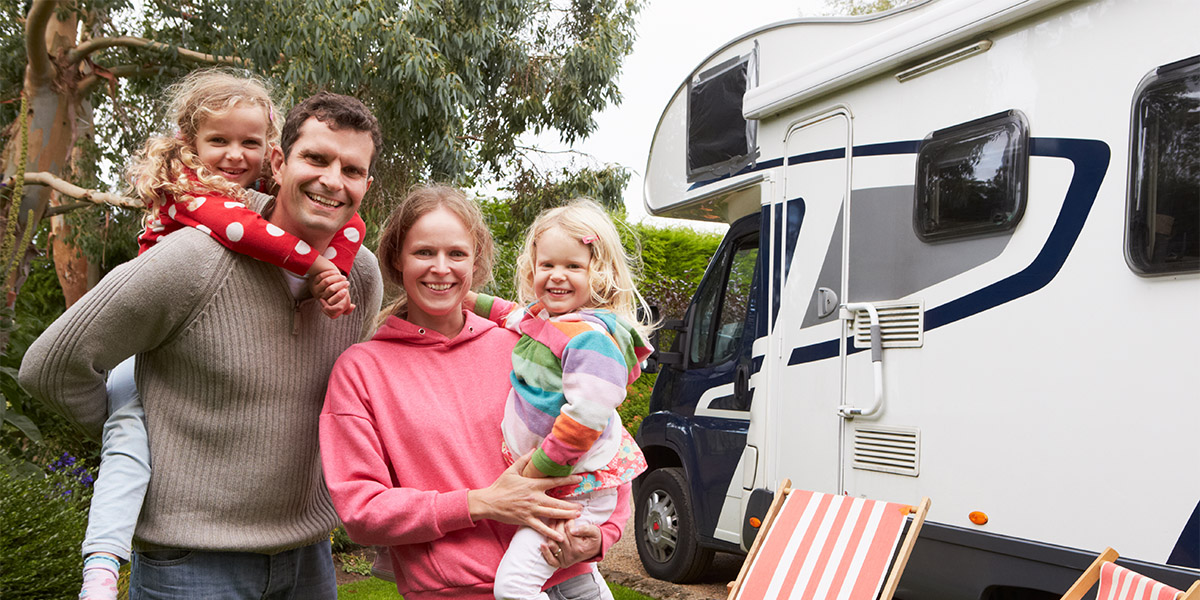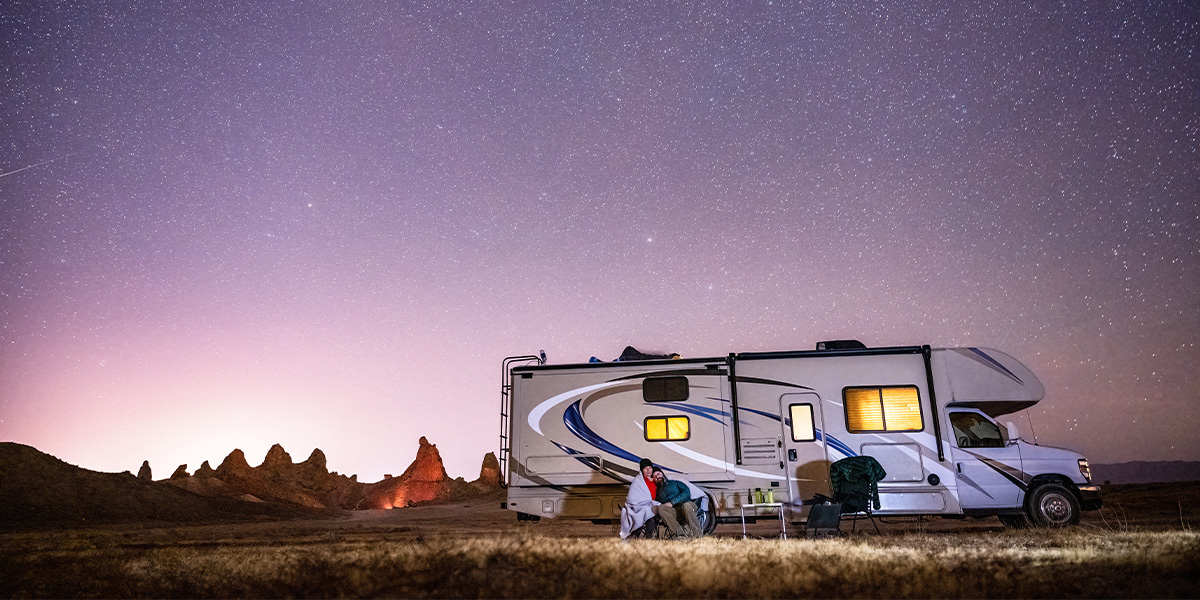Before diving into tips about boondocking, let’s talk about what boondocking actually is. Technically, it’s defined as dispersed camping on public land. Dispersed camping is defined as camping in the United States on public land other than in designated campsites, which is commonly available in national forests and Bureau of Land Management land.
Less technically speaking, it means taking the road less traveled with your new travel trailer or other RV, finding more remote spots that aren’t on public land, and camping where there is no electrical, water, or sewer hookups. Boondocking on private land may be acceptable, but only if you have the property owner’s permission to do so.
RV Trader had the opportunity to speak with some experienced boondockers, who provided some additional sage advice for those looking to join the fun.
Michelle McClure, who has been RVing full time since April 2021 with her husband Kelly, big dog Molly, and fat cat Ziggy, offers her top tips for boondocking:
- Have multiple spot options in mind. Research on Campendium, including what people say about each spot—was the road rough or muddy? Where is the nearest place to get water? Where is the nearest dump? Look at the photo people shared. Then, look at spots and follow the route on Google maps satellite view.
- Glow bracelets and necklaces are always fun. Besides that, they’re useful. Add one to the dog’s collar at night. Put a few in the bottom of a cooler so you don’t accidentally grab that weird mango-flavored drink.
- The OpenSignal app is helpful for finding out if you will have cell service in a place you’ve never been—or for those who want to extend their trip but can’t miss that one meeting.
- Take more water than you think you’ll need. Put out your fires COMPLETELY. Sadly, my husband and I have stopped and put out so many abandoned campfires over the years.
Melissa Nance, the Penny Pinching Globetrotter, and her husband Wade Smith have been RVing full-time for close to six years and almost always boondock. Here are their tips:
- Always have an atlas. You never know when you won’t have a cell signal and it helps greatly with route planning. When in the U.S., I often look for green areas and know I can most likely find some boondocking there.
- Go to Baja, Mexico at least once. There is so much great boondocking on the beach!
- Have solar lights as they save your house battery, create great ambiance, and they are inexpensive. No one wants to hear a generator when you’re out in nature.
- Go slow. Many of the best boondocking sites are down washboard and pothole-laden roads. If you drive slowly, you can make it with little issue. Also, only settle for the first spot if you’re arriving late or leaving early. There are almost always better spots further away from the main road.
- Know the weather forecast before camping on softer areas and invest in some traction boards that’ll help you get out should you become stuck.
- Head out west. The opportunities increase vastly west of the Mississippi River.
- Smaller is better. Having a smaller rig, such as a Class B RV, will make it easier to boondock as there are many narrow roads with tight turns and smaller areas to boondock. Keep your rig small and you will have more options.
- Use multiple sources to find possible boondocking spots. There are many apps and sites with information. Some are way better than others, but if one doesn’t list a boondocking area in a location you wish to visit, try another app. Some of our favorite resources are iOverlander, The Dryt, freecampsites.net, and Campendieum.
Secrets for Success
One thing that many experienced boondockers recommend for newcomers is to start small and work your way up. Take shorter trips when getting started to make your own notes on how to make longer trips successful. Keep an eye on your freshwater use, your propane use, and how much gray and black water you’re creating, and figure out better ways to conserve.
You may even want to do a test run with your used fifth wheel camper in an RV park by not using any of the hookups. If you run out of fresh water or the gray and black tanks fill up too fast, you have a resource to connect to and start over.
Here are a few additional starter tips:
- Prepare meals ahead of time. By prepping meals first and freezing them, all you’ll need to do is thaw and cook. No washing or chopping needed and you’ll save on dishes that need to be washed. This includes if you plan to have fresh fruit and/or veggies on the trip. Wash them at home so you won’t waste fresh water on site.
- Top off your propane tanks before leaving.
- In addition to topping off your freshwater tanks just before arriving on site, fill up some additional five-gallon jugs for additional drinking water.
- Make sure your gray and black water tanks are completely empty before you start.
- When possible, toss out gray water instead of letting it go to the tank.
Etiquette
Remember that other boondockers are trying to accomplish the same thing you are—finding a beautiful spot in nature to enjoy, which includes peace and solitude. That’s why it’s important to follow boondocking etiquette. Respect “quiet hours” between 9:00 p.m. and 7:00 a.m. (not a rule, but a good guideline) by not running your generator, playing loud music, shouting, or anything else that could disturb others. Also, when searching for a spot, try to put as much distance as you can between you and any neighbors to keep sound issues to a minimum.
While boondocking, trying to remember the motto, “Take only photos; Leave only footprints.” In other words, be sure to take out everything you bring in with you. One exception may be ashes in a fire pit, but as Michelle mentioned early, always fully extinguish your fire and embers before leaving the site. If you’re ready to find your next RV for boondocking, browse the nationwide inventory of new and used vehicles on RVTrader.com.
By Barrett Baker
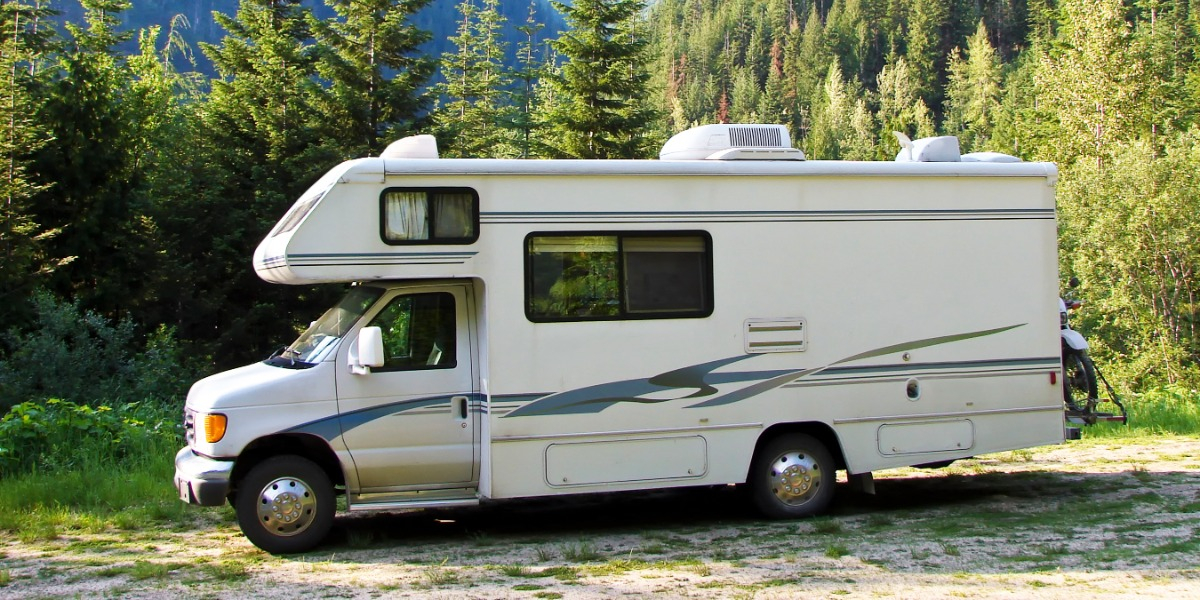

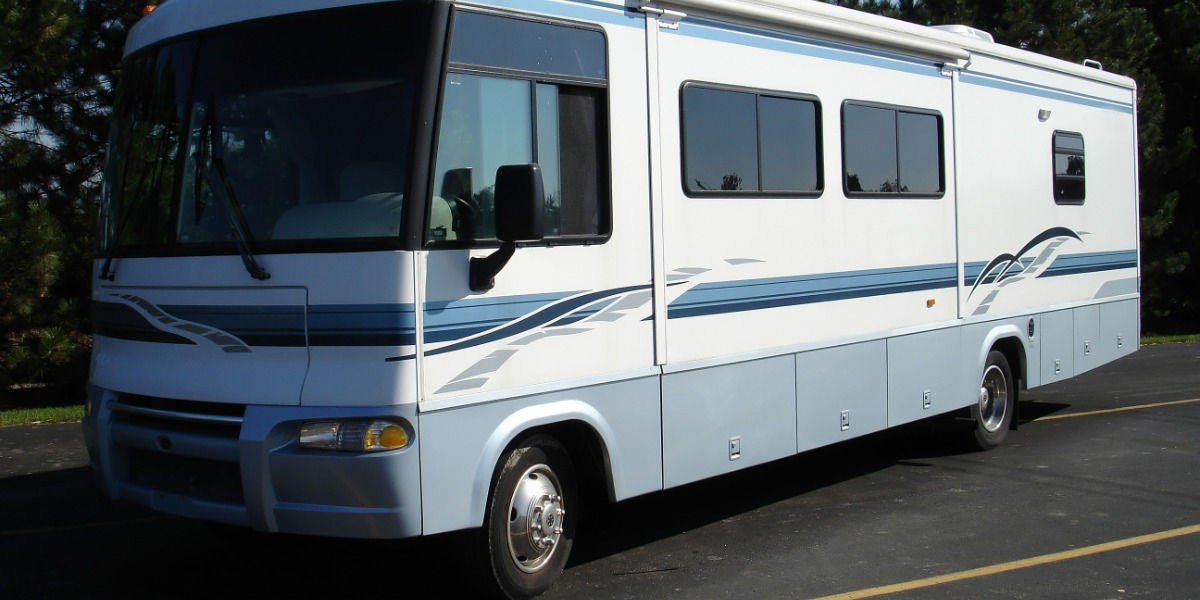
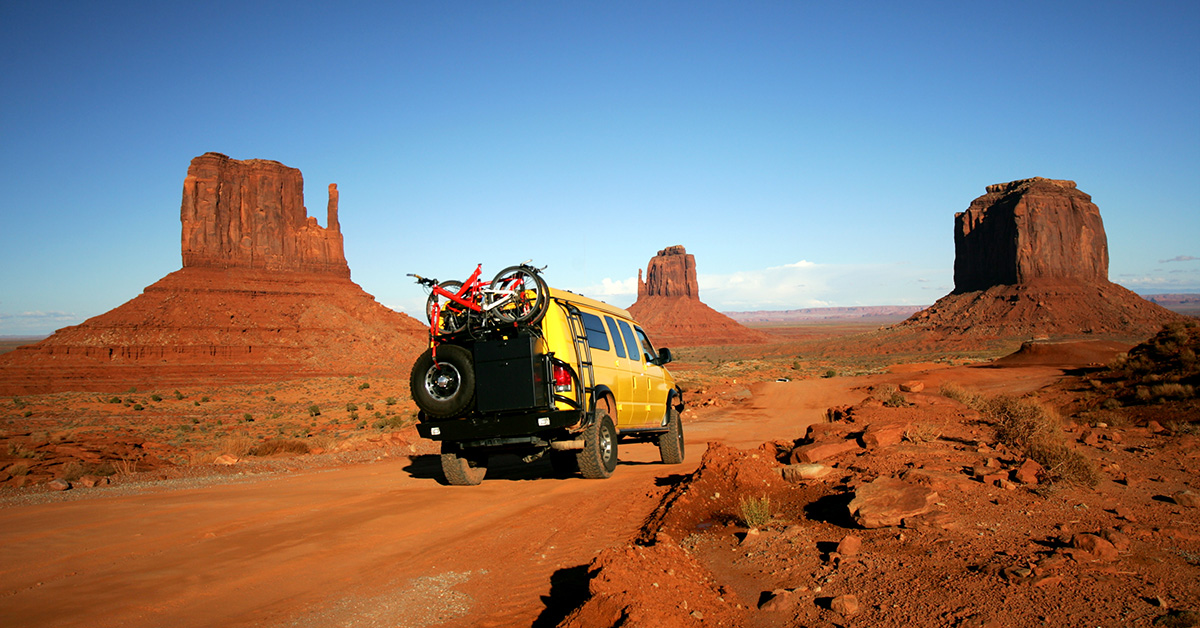
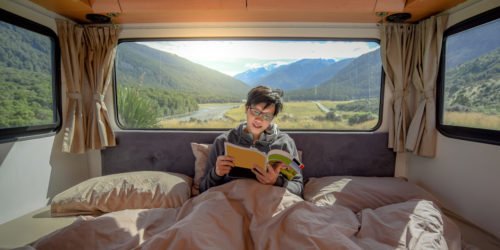
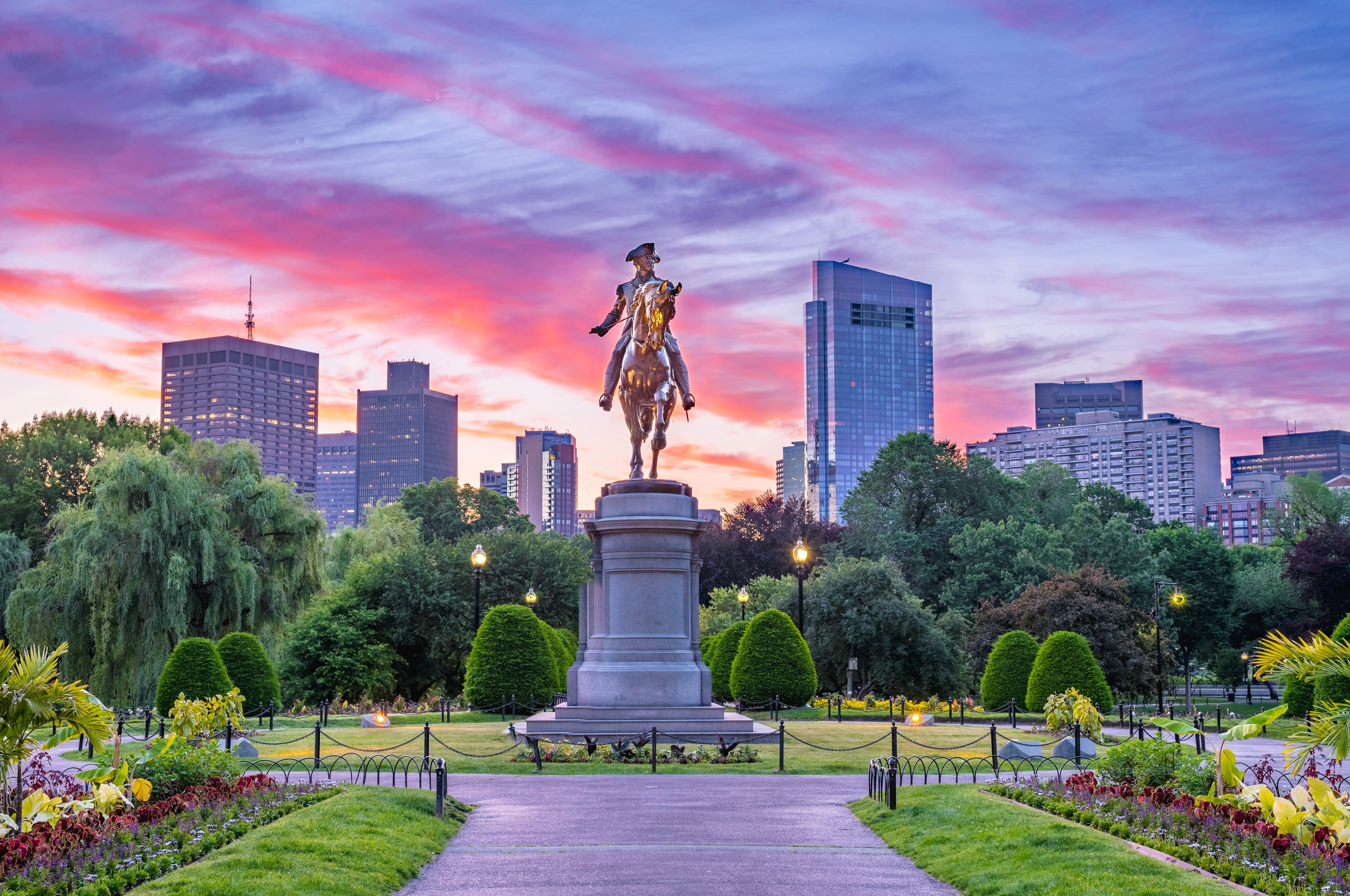
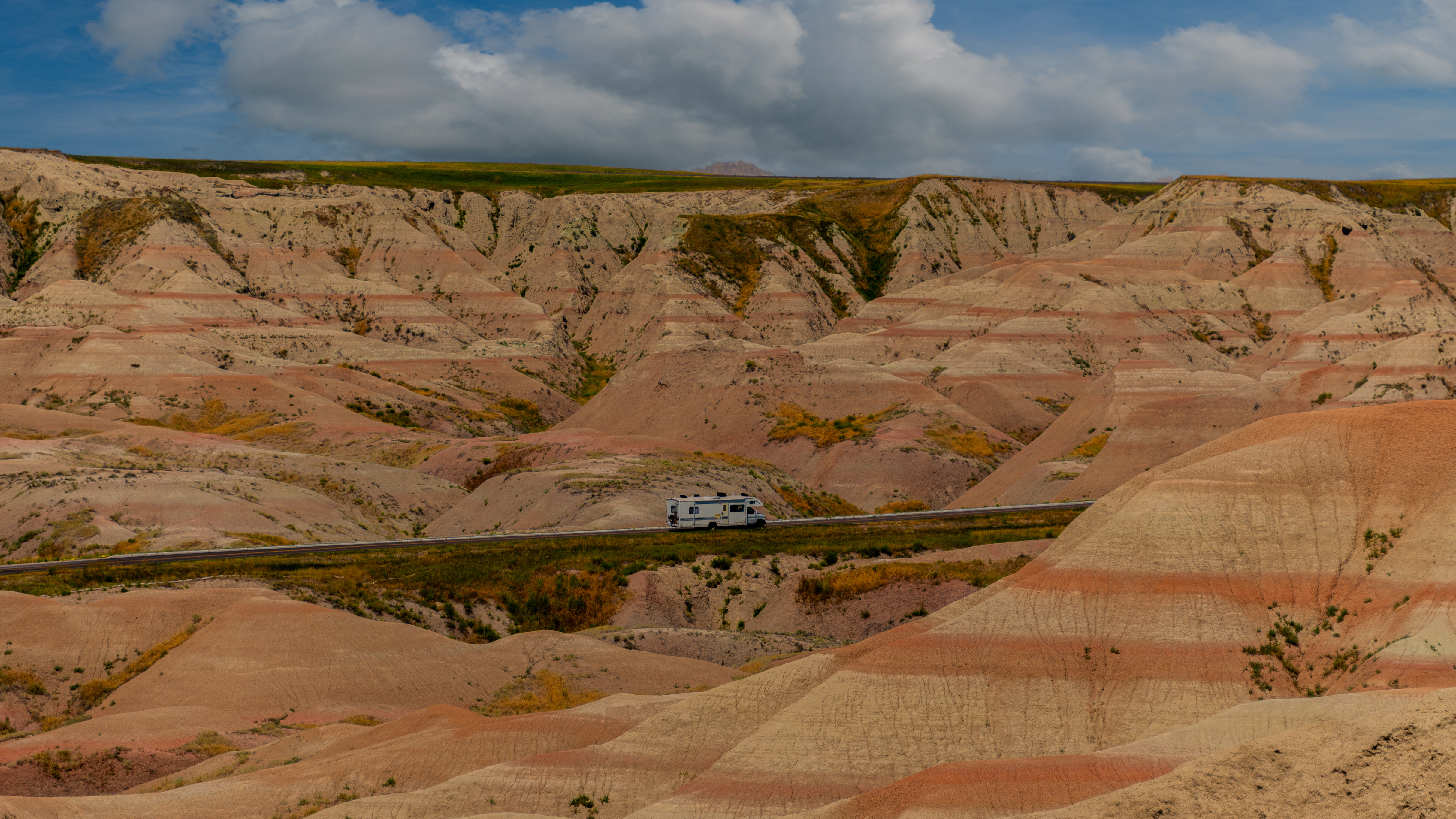
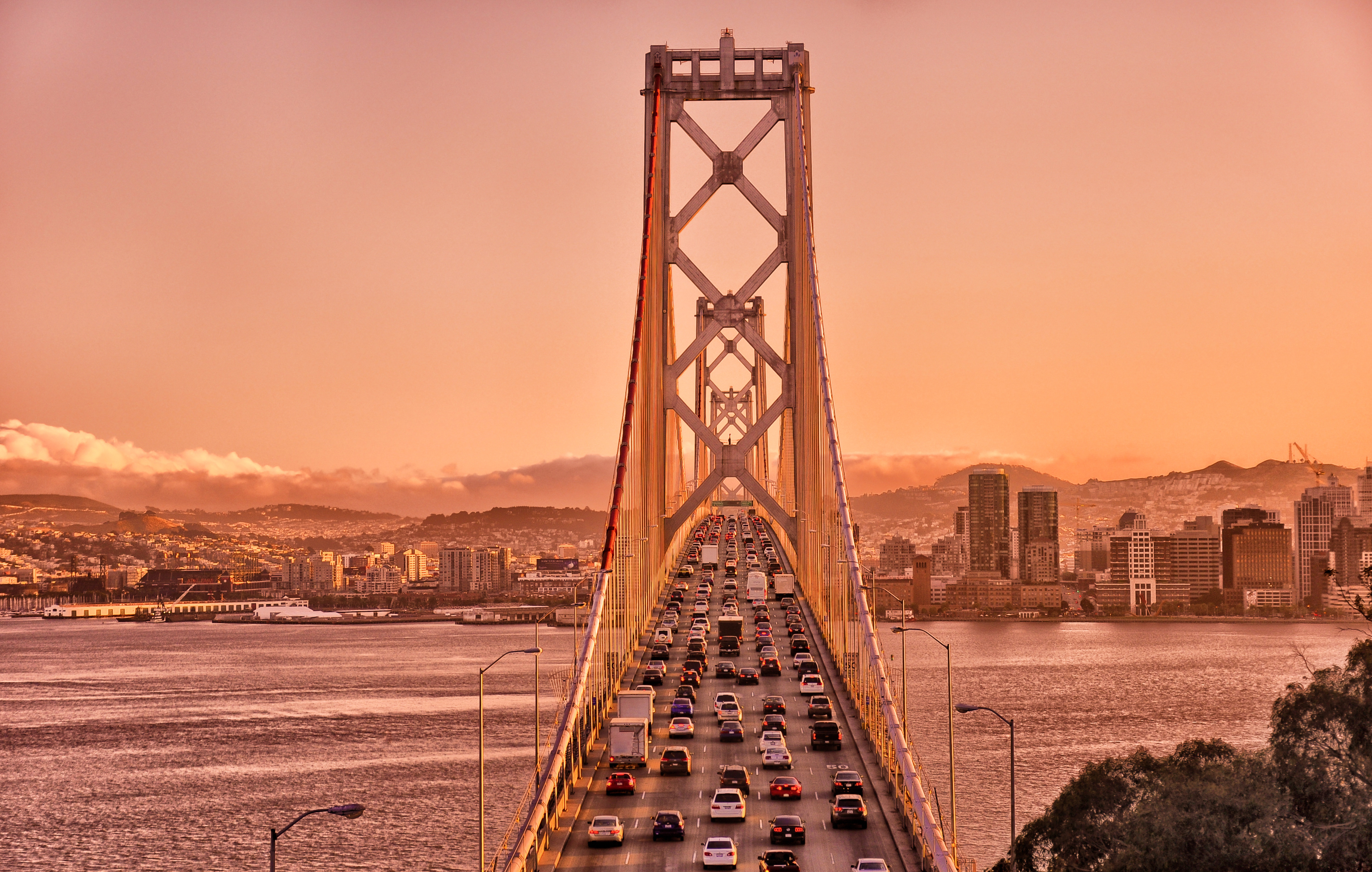
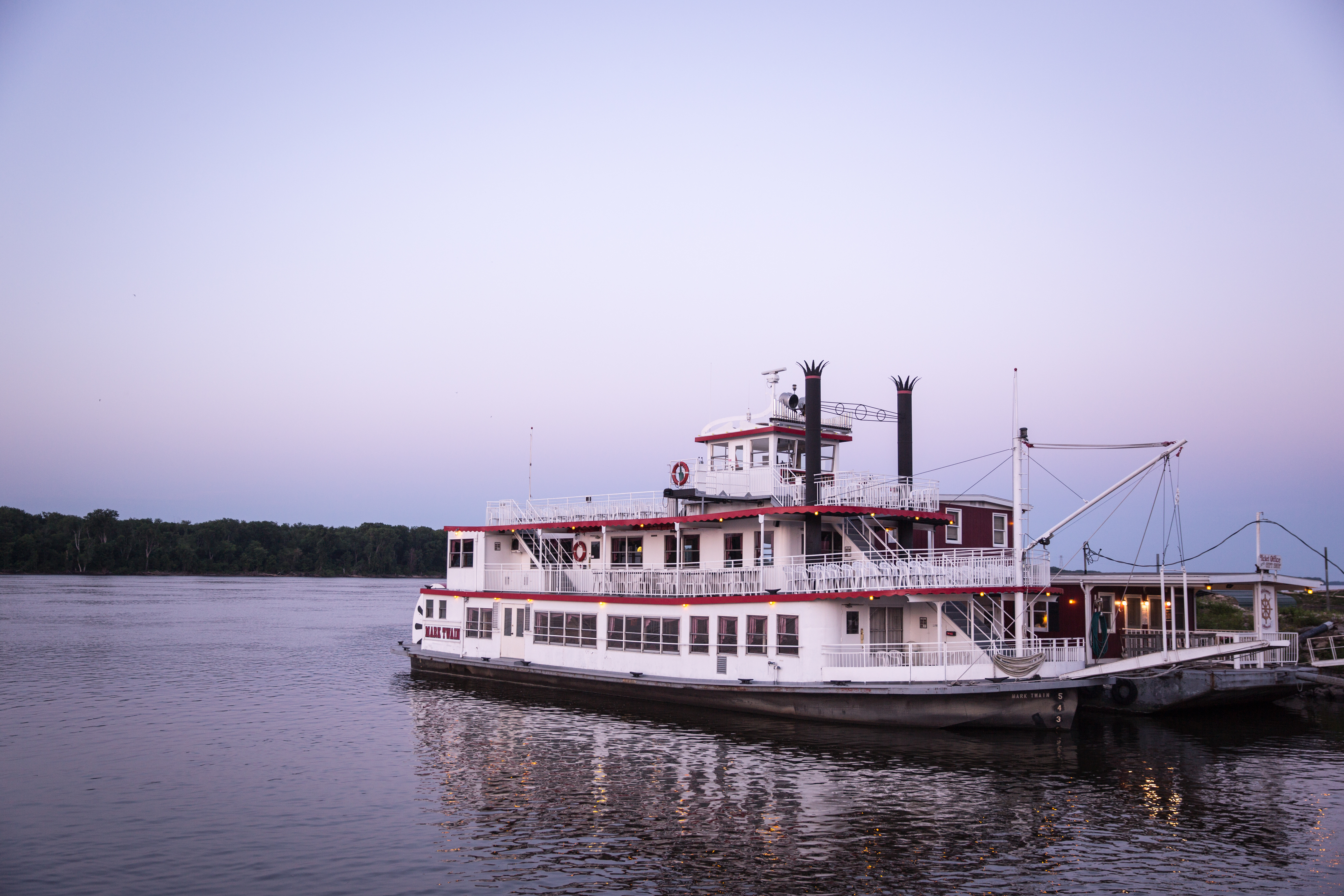
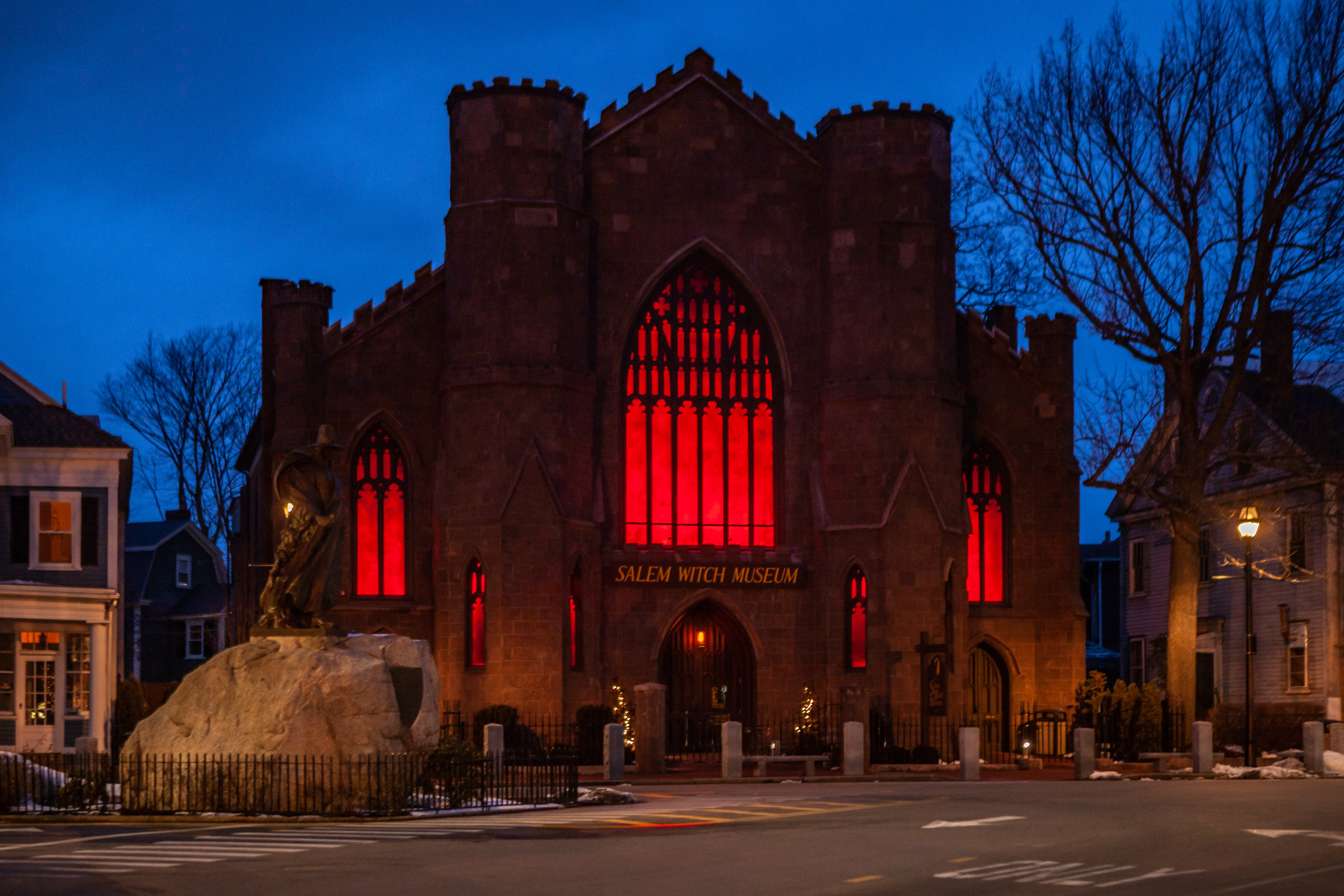

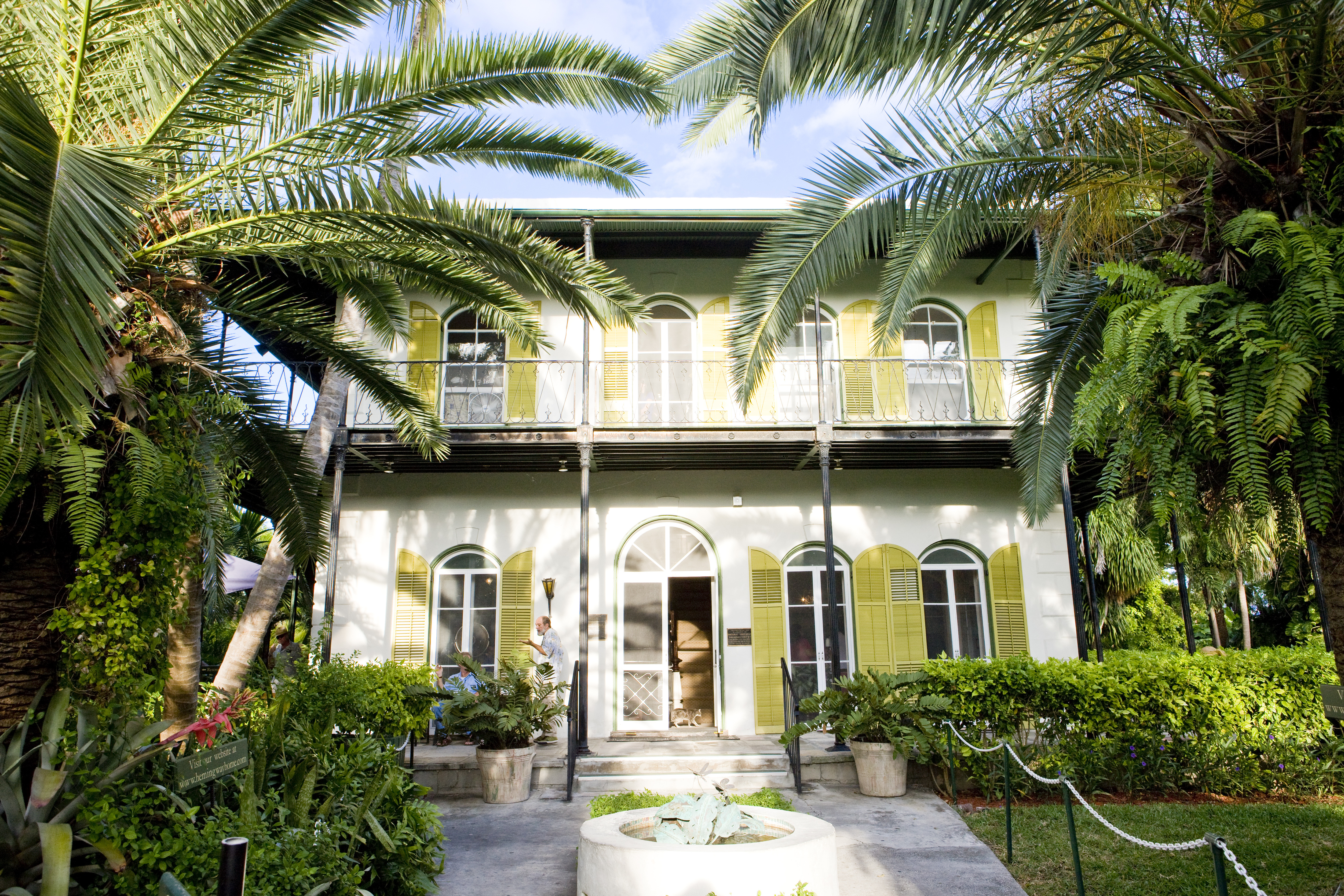
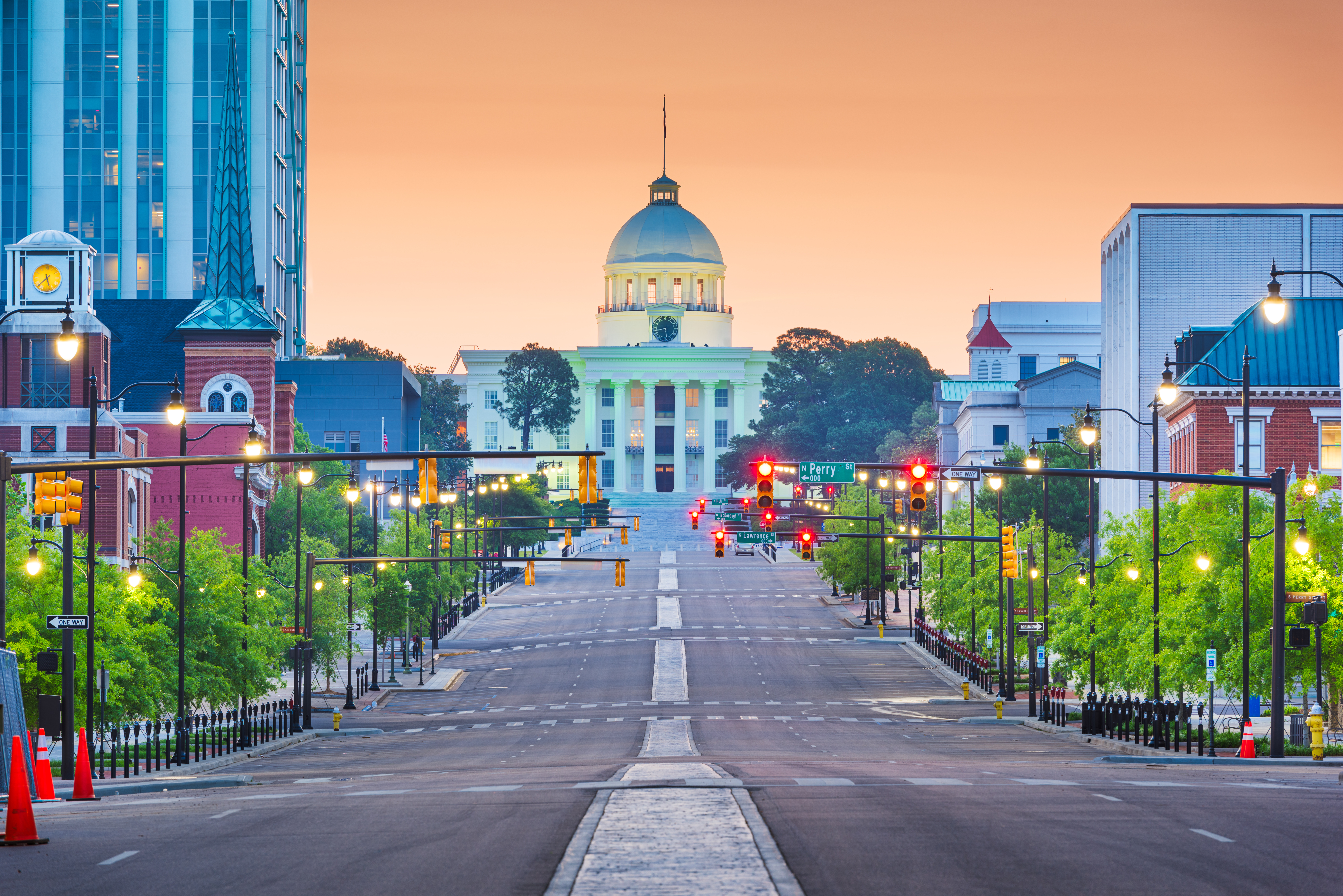
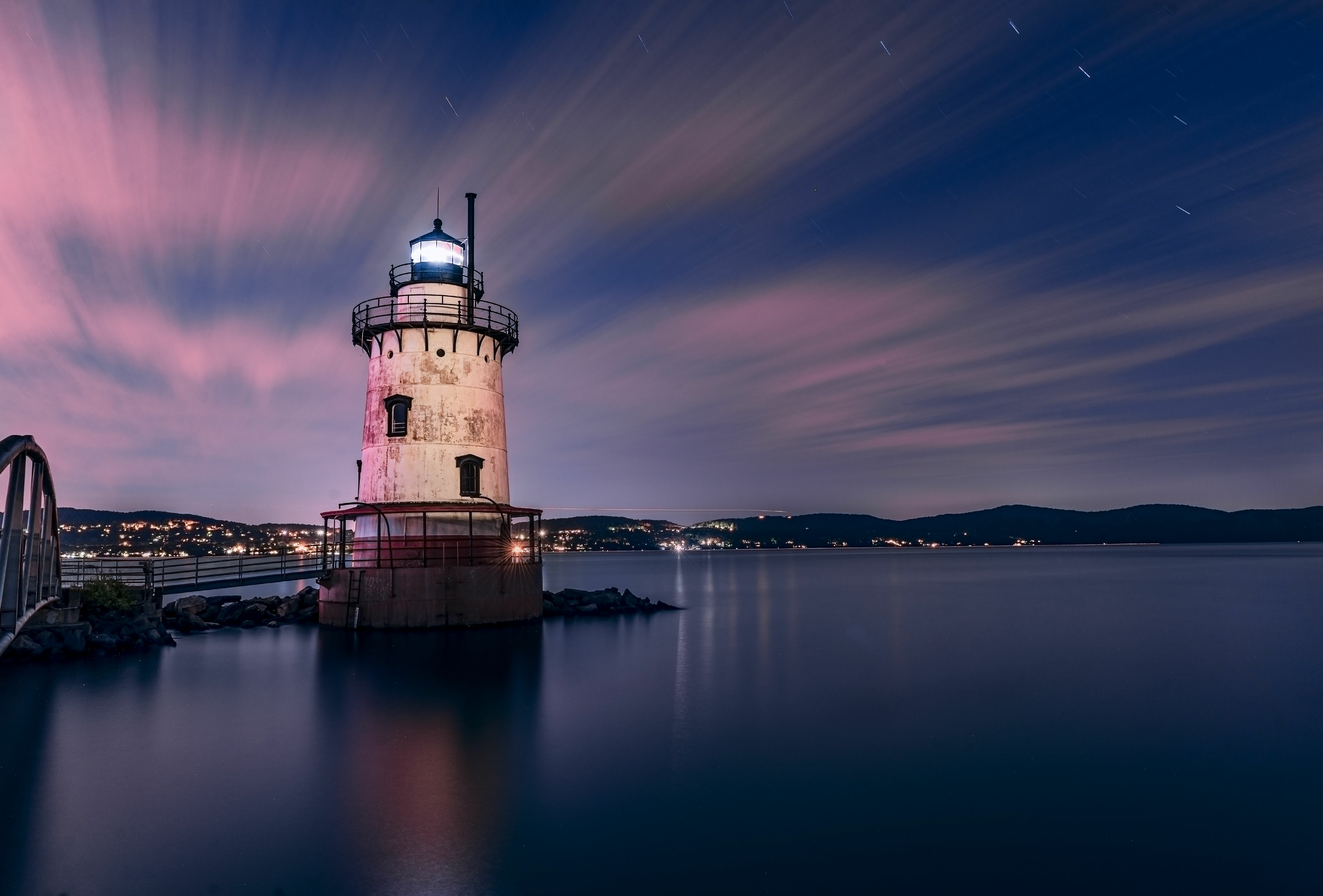
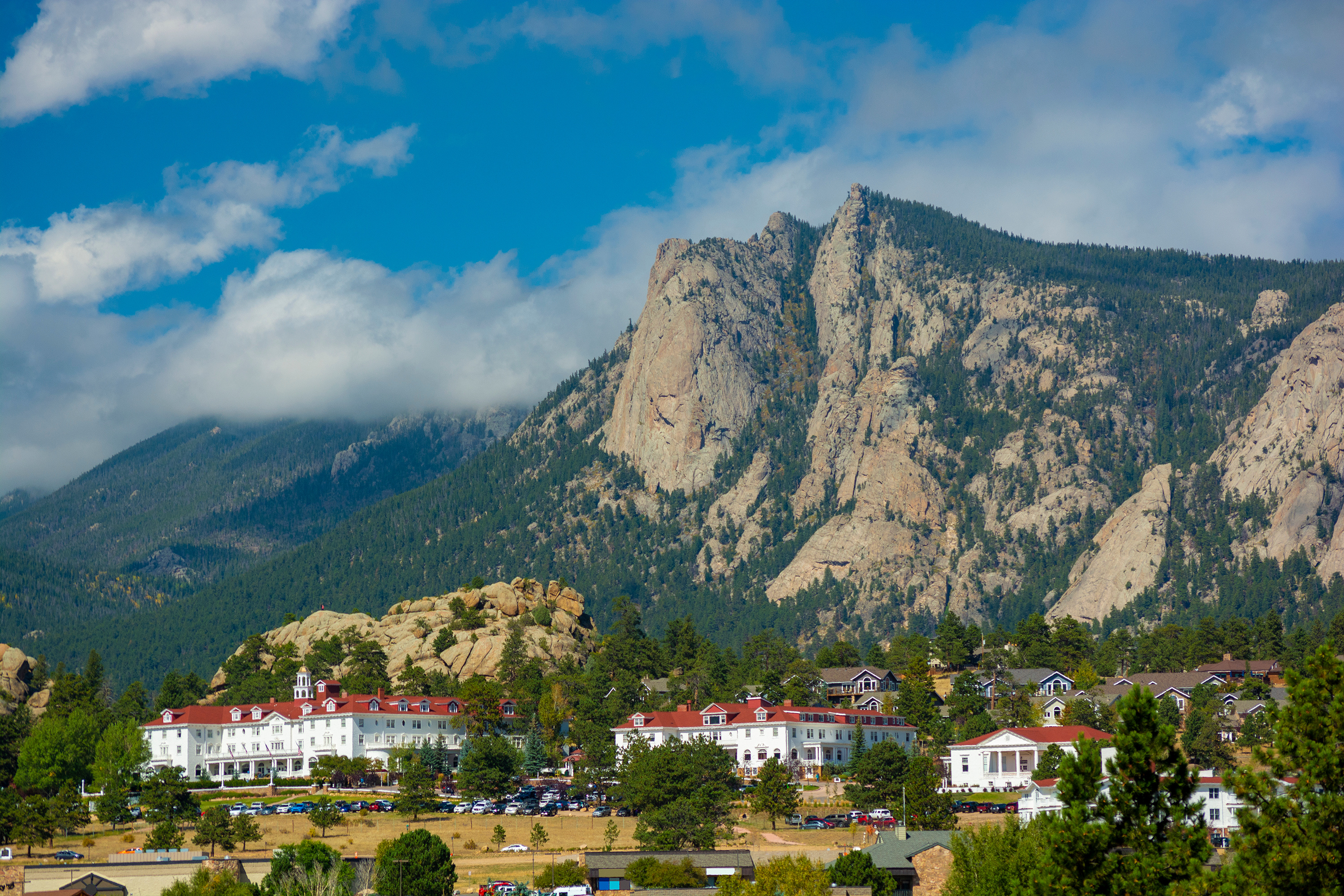
 FMCA educates, equips, and empowers RV owners in their journey to creating, experiencing, and benefiting from the outdoor lifestyle they dream of and deserve. FMCA is your ally to the outdoor lifestyle you love and enjoy.
FMCA educates, equips, and empowers RV owners in their journey to creating, experiencing, and benefiting from the outdoor lifestyle they dream of and deserve. FMCA is your ally to the outdoor lifestyle you love and enjoy.